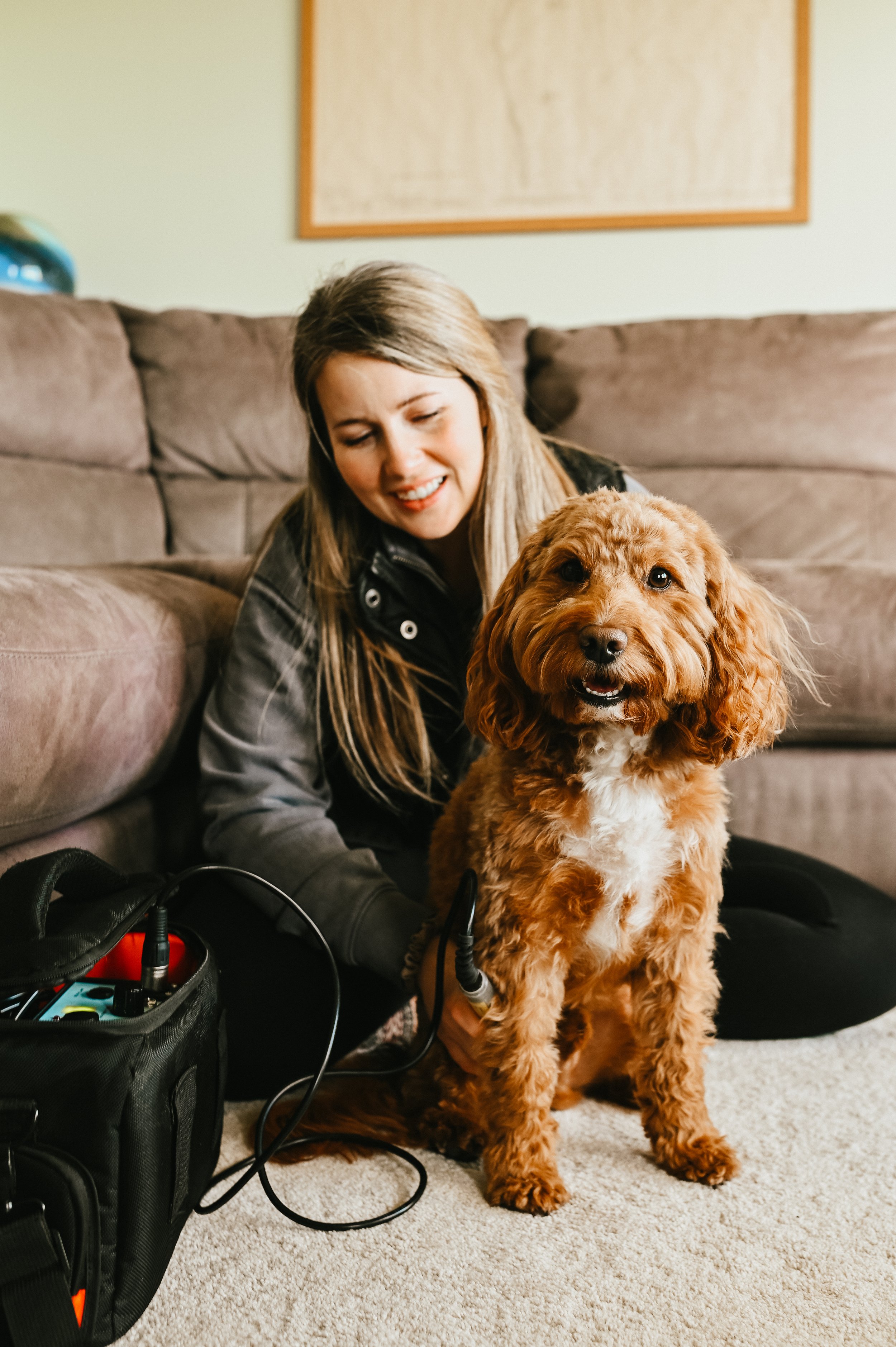Information for Vet Professionals
This page contains information for veterinary surgeons, nurses or other professionals who may wish to refer an animal for physiotherapy with Kayleigh.
Training
Kayleigh holds a First Class BSc (hons) in Veterinary Physiotherapy from the Royal Agricultural University, as well as being awarded the University Prize for RAU Student of the Year.
This was a full time degree, with clinical skills taught via hands-on workshops, as well as at various physiotherapy practices and referral centres around the UK.
The course benefitted from having a very small cohort, allowing more one-to-one hands-on learning. Kayleigh had the benefit of learning from various experienced physiotherapists with diverse backgrounds and skillsets, with a large proportion of her clinical skills learnt under a highly experienced canine rehabilitation veterinarian specialist.
Accreditation
Kayleigh is a member of NAVP (National Association of Veterinary Physiotherapists).
Why not ACPAT? To put it simply - I don’t treat humans. ACPAT is an association for chartered physiotherapists (human physiotherapists, as there is no charter for animal physiotherapists), who have undergone further training to also treat animals.
I knew from early on that I only wanted to treat animals, and was lucky enough to do my training at a time when it has been possible to undertake a full degree specifically specialising in Veterinary Physiotherapy, without having to go through the human route first.
I chose NAVP as they promote the highest standard of veterinary physiotherapy, ensuring members hold a minimum of a BSc in Veterinary Physiotherapy, are fully insured, abide to veterinary legislation, work to a professional code of conduct and enhance their skills by completing annual CPD.
Experience
Kayleigh has several years experience working full-time in one of Hampshire’s leading canine rehabilitation centres, as well as running her private practice part-time. She has vast experience in common orthopaedic and neurological conditions, as well as treating more complex cases such as RTA trauma and suspected tick-bite paralysis.
She is also experienced with canine hydrotherapy, and works closely alongside local canine hydrotherapists to provide a blend of treatment modalities best suited to each individual case.
She has a keen interest in soft tissue injuries, particularly bicipital tendonitis, medial shoulder syndrome and iliopsoas injuries.



